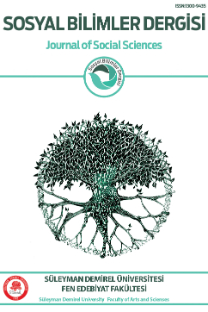Augustinus'un Varlık ve Bilgi Görüşleri
Ortaçag düsüncesinde, “inanma” ile “bilme” etkinliklerinin sınırları belirsizlesmistir. Bu durumun ortaya çıkmasında en önemli etkiye sahip düsünür, herhalde, inancını felsefî bilgi aracılıgıyla gerekçelendirmeye çalısan Augustinus’tur. Onun bu tutumu, “oldugu bilinen” ile “olduguna inanılan”ın, “bilgi” ile “inanç”ın birbirinin içine geçmesine öncülük eder. Bu durum kendisini özellikle onun varlık ve bilgi felsefesinde gösterir. Varolanları “hakiki olup olmamalarına göre” bir deger sıralaması içinde ele alan Augustinus, Platon’un ideası ile aynı özelliklere sahip oldugu için, en üste Tanrı’yı yerlestirir. Var olanların geri kalanını da, özelliklerinin ona benzerligine ya da benzemezligine, yakınlıgına ya da uzaklıgına baglı olarak onun altına dizer. Varlık sıralamasını bu ölçüte dayandırdıgı için, bilinmeye deger olanların sınıflanması ve sıralanması da aynı ölçütten nasibini alır ve bilmeye deger tek hakikatin Tanrı oldugunu; geri kalan her seyin de ancak onun temsili oldukları ölçüde bilinmeye deger oldugunu söyler. Bu yazının amacı, onun varlık ve bilgi görüslerini serimlemektir.
In the Medieval thought, the distinction between the activities of “believing” and “knowing” has become indefinite. The thinker that has the most important impact on the generation of this situation was, I think, Augustinus who tried to justify his belief through philosophical knowledge. This attitude of his has led “knowledge” and “belief” to mix into each other. This position has showed itself especially at his epistemology and ontology. Augustinus who arranges beings in a value-order “according to their trueness”, (because of the identity of God’s attributes with the Plato’s dea’s properties) put God to the top of this order. Remainder of the beings lined under the God according to their proportion of resemblance to God. In Augustian thought, the classification of the things that is worth being known gets its share from the same standart: the only thing that is worth being known is God and all the other things are worth being known only when they are a representation of God. The aim of this article is to expose the ontology and epistemology of Augustinus.
